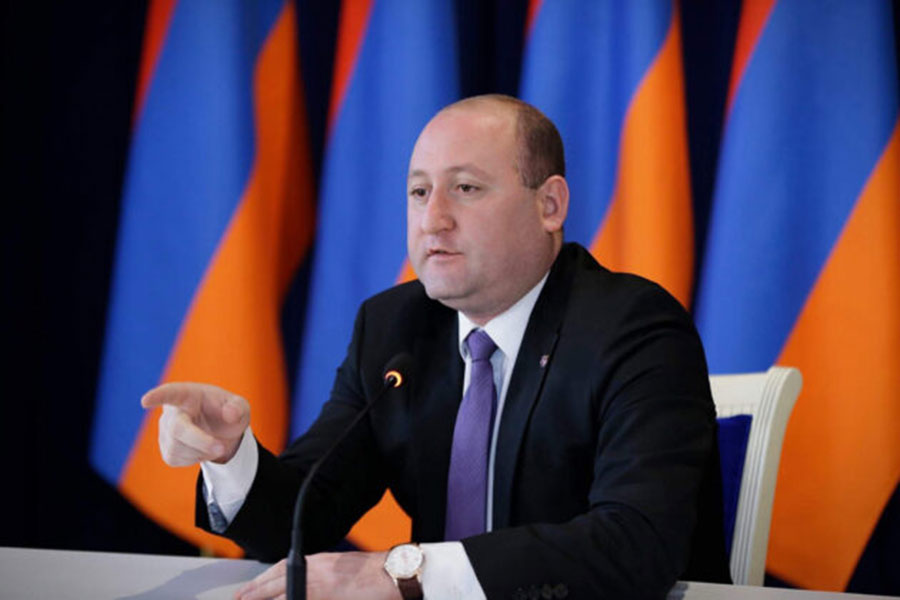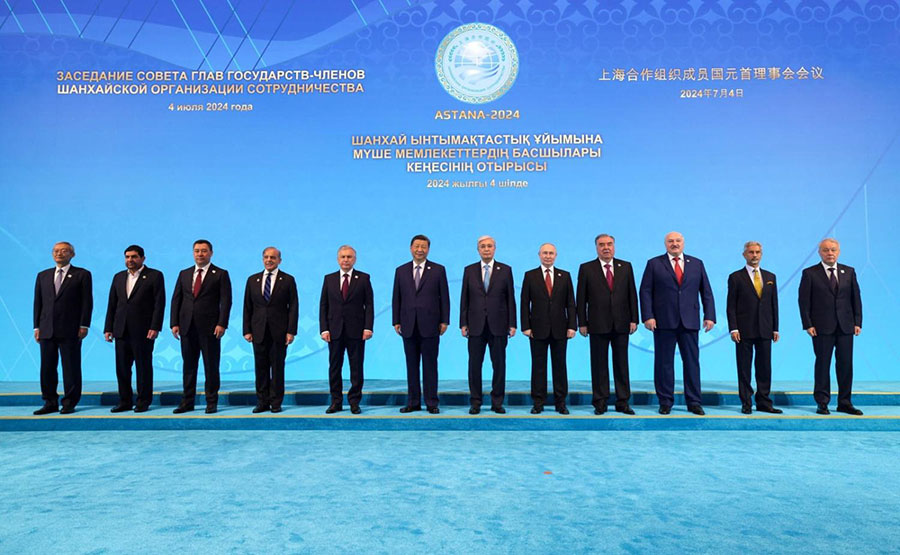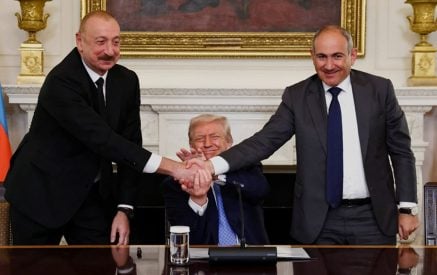by Suren Sargsyan
The Shanghai Cooperation Organization (SCO) summit in Astana on July 4 did not receive significant attention in Armenian political and media circles. In fact, the events in Astana have been noteworthy, with significant implications for global order in the Eurasian region at large. Presidents of the Shanghai Cooperation Organization member states convened in Kazakhstan’s capital, marking a pivotal moment for Eurasia. In addition to the leaders of the member-states, such as Russia, China, and Iran, representatives from the so-called Plus group, including Azerbaijan and Turkey, and other states were present. No representative from Armenia participated in this meeting, though Armenia has the same status and weight in this organization as, for instance, Azerbaijan.
Back in 2015 at the meeting of the Council of Heads of SCO Member States which was held in Ufa, Russia, Armenia signed a number of documents and was granted the status of SCO dialogue partner along with Azerbaijan. The Ufa Summit could be considered the cornerstone of the Armenia-Shanghai Cooperation Organization relation. In general, the “twin” summits in Ufa of the BRICS (Brazil, Russia, India, China and South Africa) grouping and the SCO are considered a strategic milestone for the emerging global order and India’s role in it.
Read also

Suren Sargsyan
Coming back to the Astana Summit, we can see that this one was no less important and significant in terms of current geopolitics, including those touching upon Armenia’s interests. For instance, during the meeting in Kazakhstan, in addition to general organization meetings, Russian President Vladimir Putin held separate meetings with the presidents of Turkey and Azerbaijan and the acting head of Iran’s executive body (as the meeting took place before the presidential elections in Iran). Apart from other matters, these parties obviously discussed the situation in the South Caucasus region. Unfortunately, Armenia was not there while it was a subject of a strategic discussion.
Another significant event occurred at the Astana summit. During the meeting between the Azerbaijani and Chinese presidents in Astana, a strategic cooperation agreement was signed, which contains a number of important provisions in terms of deepening bilateral relations in all spectrums of relations. It is noteworthy that China signed such an agreement with Georgia about a year ago, which means that China is interested not only in Azerbaijan but also in the South Caucasus region at large. In this regard, Armenia is clearly behind in terms of raising the level of relations with China, and this is a short-sighted policy considering the growth of China’s influence not only in the South Caucasus but in the whole world. Needless to say, by signing strategic cooperation agreements, Azerbaijan and Georgia are expecting significant Chinese investments in their economies which will have a serious impact on the development and diversification of the economies of both states. Unfortunately, Armenia lags behind in this aspect as well. But this is only the economic component of it all.
From a geopolitical perspective, the regional powers in the South Caucasus — Russia, Iran, and Turkey — have aimed at diminishing Western influence in the region. Now we see that China is a new player emerging in the South Caucasus, opposing Western influence and countering American interests, in parallel to the US stance against China. The promotion of Western values in Armenia poses challenges for Azerbaijan, as totalitarian states typically resist democratic neighbors due to their impact on their public sentiments. Now, if we look at Georgia we will see that Tbilisi attempts to mend ties with Moscow, receiving strong criticism from Washington and Brussels. Notably, weak Armenia remains the sole South Caucasus state looking towards the West for solutions to its security and economic challenges and the lack of diversification leaves Armenia to float downstream.
In this regard, Armenia’s absence at the summit where vital issues for Yerevan were discussed is puzzling, considering regional and global developments and Armenia’s complete detachment from this reality.





















































